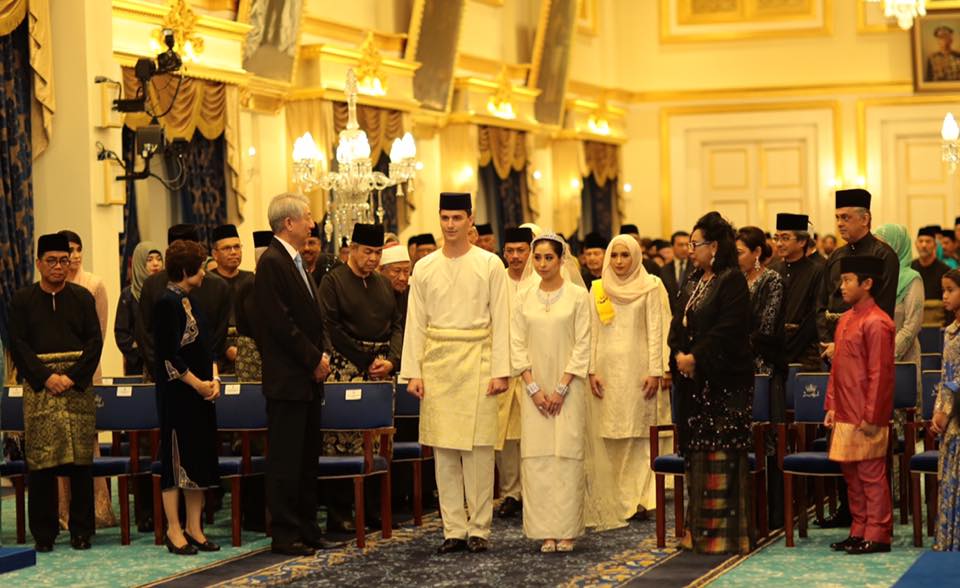So you might have heard that the Princess Aminah of Johor (full name Tunku Tun Aminah Maimunah Iskandariah Sultan Ibrahim) got married to her ang moh boyfriend Dennis Muhammad Abdullah on Aug. 14.
The strapping groom and the blushing bride tied the knot in front of a star-studded guest list, including dignitaries like Prime Minister Najib Razak, Johor's Chief Minister Mohamed Khaled Nordin and Sultan Hassanal Bolkiah of Brunei.
But as it turns out, they were not the only politicians there. Can you spot a familiar face in the crowd?
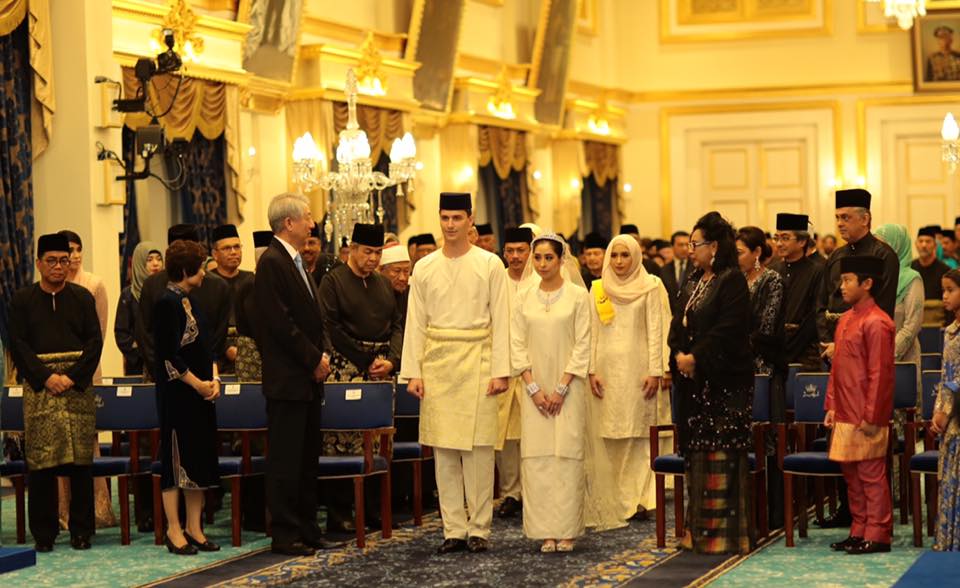 From Teo Chee Hean's Facebook page
From Teo Chee Hean's Facebook page
That's right, it's none other than our very own Deputy Prime Minister, Co-ordinating Minister for National Security and Minister-in-charge of the Civil Service Teo Chee Hean.
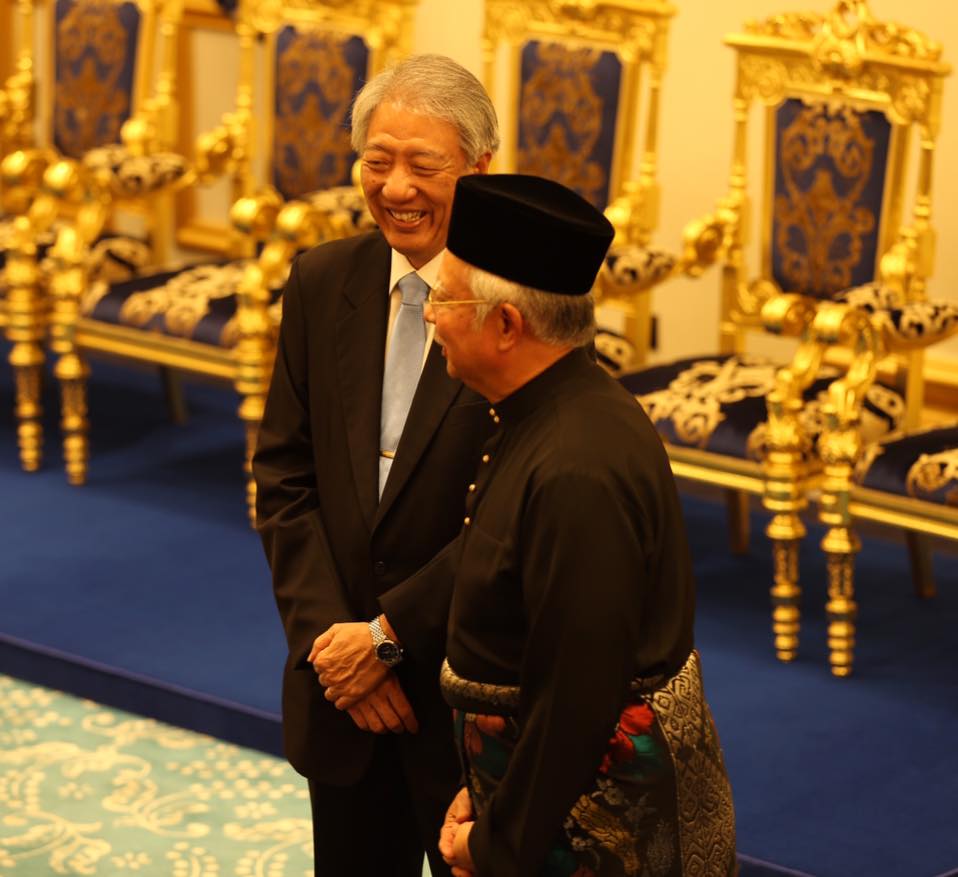 Photo from Teo Chee Hean's Facebook page
Photo from Teo Chee Hean's Facebook page
It's no secret that Singapore has good relations with the State of Johor. During special occasions, it's quite likely that a Minister or two will pop across the Causeway to say hi to Sultan Ibrahim.
Here's Minister in the Prime Minister's Office Chan Chun Sing and Minister for Social and Family Development Tan Chuan-Jin during the Sultan's Open House celebration for Hari Raya in 2015.
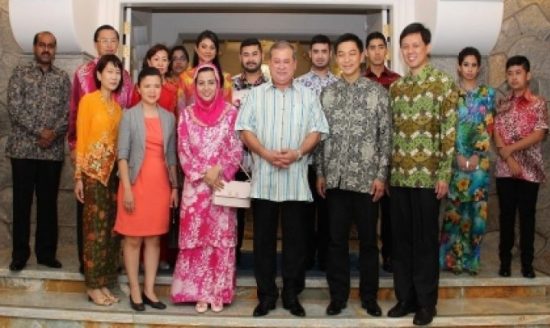 Photo from MFA.
Photo from MFA.
[related_story]
And look, Minister for Health Gan Kim Yong and Minister in the Prime Minister's Office Desmond Lee just happened to show up for the Sultan's 2017 Hari Raya celebrations.
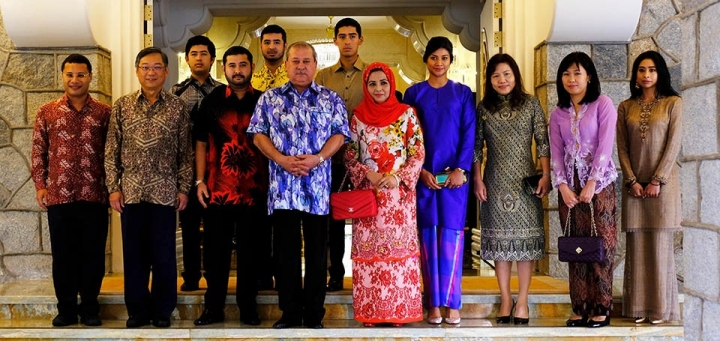 Photo from MFA.
Photo from MFA.
While we've had our ups and downs with the Federal government of Malaysia, Singapore has always taken care to cultivate the royal family and state government of Johor.
A Sultan Ascendant
The Sultan of Johor recently made the news when he spoke publicly on the proposed RTS link between Singapore and Malaysia. While supportive of the overall project, he was skeptical of the proposed design and wanted a more prominent role for the Johor state government in the project. According to the Sultan:
"Go back to the drawing board and review the overall plan.
The parties also have to consult me. Whatever (new plan) is presented to me, it will have to be logical, economical and sustainable for the benefit of not only Johoreans but all Malaysians and Singaporeans.”
The Sultan even said that the Johor government could enter into a joint-venture with Singapore and he could raise the funds himself if necessary.
But why is the Sultan asserting himself in such a manner? According to Francis E. Hutchinson, an academic with the ISEAS-Yusof Ishak Institute, the Sultan's actions are in line with certain trends in Johor as well as Malaysian politics as a whole.
Game of Thrones
Malaysia's royal system is a little different from other countries. While some countries don't have monarchs and others do have them, only Malaysia has nine monarchs from different states across the federation. Every five years (or when a vacancy opens up), they assemble in a Majlis Raja-Raja (Council of Rulers) to choose who will be the federal constitutional monarch and Malaysia's head of state.
 Gif from Tumblr
Gif from Tumblr
Each of the nine Malaysian monarchs are only ceremonial rulers, real executive power lies with the Menteri Besar (Chief Minister) of each Malaysian state, and the Prime Minister at the national level. But that doesn't mean that the monarchs are content to remain in the background. In recent years, the sultans of Perak and Selangor have intervened in politics at the state level.
During the Prime Ministership of Mahathir Mohamed, royal prerogatives were curtailed. However, the political moves made by Malaysia's monarchs may demonstrate a desire to reclaim their authority and influence.
The Special Relationship
Singapore's bromance with Johor goes back to colonial times, before either Malaysia or Singapore had gained their independence. In those days, sultans had more power. In particular, Johor had more influence than most Malay states due to its wealth. It enjoyed special benefits, like its own army.
In fact, the treaties and that define our relationship with Malaysia today were actually initiated by the state of Johor. For example, the 1960s water agreement were based on a prior agreement signed between Singapore and Johor in 1927.
Other factors, such as the contours of the border between Singapore and Malaysia, were established in 1928 in an act signed between the Sultan of Johor and the Governor of the Straits Settlements.
Even the Causeway we use today was also two-thirds funded by the current Johor Sultan's great-grandfather. At first, the Causeway was envisioned as a rail-link only. The Sultan requested for vehicle and pedestrian access as well, and when the governments refused he paid for the extra cost himself.
Grand Ambitions
With all this history in mind, it's perhaps no wonder that we see the current Sultan of Johor, who has grand ambitions for his state and exercises his influence visibly, stepping up and becoming more active in not only local politics, but also bilateral matters between Malaysia and Singapore.
The Sultan promotes the idea of Bangsa Johor, an ideal rooted in pride in the state's success. He's also frequently spoken up on economic issues affecting the lives of his Johor subjects.
As the proposed RTS link will be one of them, the Sultan of Johor is one major player that the Singapore government can't afford to ignore in the years ahead.
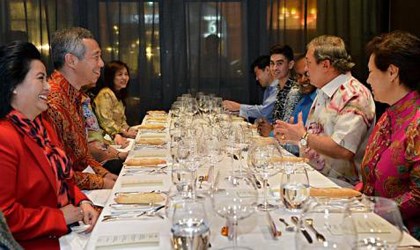 Photo from MFA
Photo from MFA
Top photo from DPM Teo's Facebook.
If you like what you read, follow us on Facebook, Instagram, Twitter and Telegram to get the latest updates.
